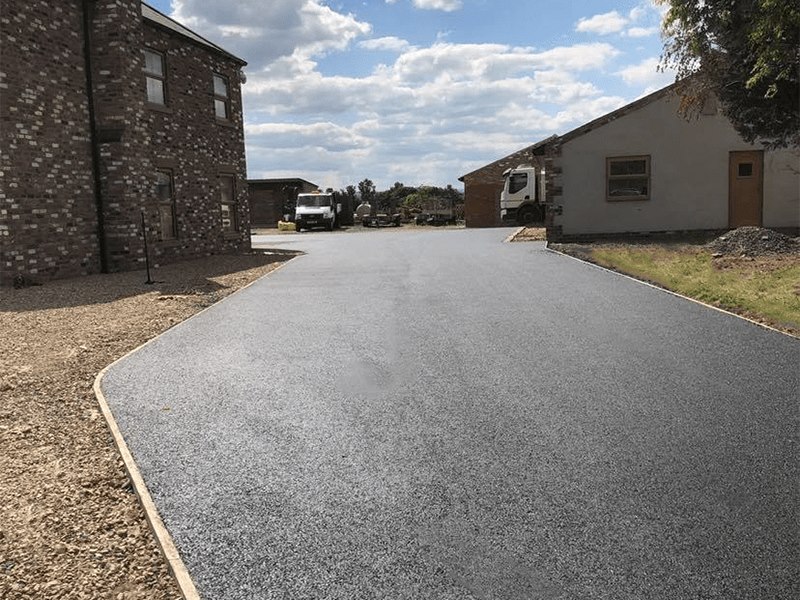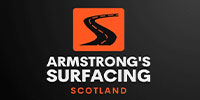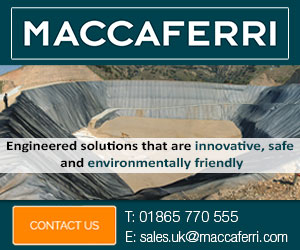Looking for tarmacadam surfacing in Scotland or North East England?
Armstrong’s Surfacing ltd Tarmacadam
Armstrong's have over 30 years experience in the Road Surfacing Industry. From the smallest driveway repairs, to the biggest commercial tarmacadam contracts, we have the equipment and the know-how to work safely, efficiently and most importantly, cost effectively. Contact us FIRST for a new tarmac road or driveway in Edinburgh, Glasgow, Scottish Central Belt, Inverness, Highlands & Islands. Inquiries are also welcome from North East England, Yorkshire & Cumbria areas. (further afield by arrangement).
Tarmacadam or 'tar paved' roads & driveways cost less per square metre than most other surfaces. They're low maintenance, long lasting (15 to 20+ years) & durable. Tarmacadam also performs well in colder climates like that in experienced in the northern UK. So, what's involved in preparing an area for tarmacadam? Or Asphalt? What's the difference? To the layman they look the same, however there are subtle differences. Asphalt is made up of crushed gravel and bitumen, whereas tarmac uses natural tar to bind crushed stones, sand & aggregate together. The word 'macadam' comes from John Loudon McAdam, a Scottish engineer who pioneered the method of road construction; only later did tar get introduced by Londoner John Casell, who used it to seal the macadam roads to prevent dust and rutting. Finally, in 1901, Edgar Holley patented the 'tarmacadam' process, which involved the mechanical mixing of the tar and aggregate before it was laid, then compacting it with a roller. The tar mix was modified by adding cement, and pitch; the first true tarmacadam highway was Nottingham's Radcliffe Road in 1902. As a rule of thumb, Armstrong's Surfacing use tarmacadam for domestic/private works, and asphalt for commercial work and pathways. Tarmacadam can be laid on top of existing driveways, provided they're in relatively sound condition. Cracks have to be made good, weeds suppressed & edging needs to be looked at; If it's a new build, or if the old surface is poor, excavation will be required to a depth of around 180mm; then a sub base of crushed stone is laid. This is then compacted before application of tar paving. If you have neighbours looking for new surfacing as well, you could benefit from referring them to us BEFORE any work is done. Why? Because tarmac's always bought in bulk meaning there's a good chance we could significantly reduce laying costs by bundling local contracts together.
Tarmacking ISN'T a job for amateurs or DIY. It takes skill, patience, specialist tools and heavy equipment. It's one of the cheapest driveway surfaces out there, hence it's popularity, so.....
How much does it cost to Tarmac® a drive?
At Armstrong's Surfacing Scotland, we charge the same for Asphalt or Tarmacadam. Cost depends on preparation work needed, access for plant & machinery, road length or driveway size and/or the proximity of other jobs. Other factors are oil prices, colours (tar paving doesn't always have to be black!) and number of layers. Two tarmacadam layers are normal. The base is normally around 60mm and the second layer or 'wearing course' as its usually known, 10mm. What's best for your site? Contact Armstrong's Surfacing today, & we'll come and have a look. Our advice is FREE & QUOTATIONS are at no obligation. Click the button below to get straight though to your local tarmac and asphalt estimator, email us, or use the contact form.

Armstrong’s Surfacing ltd
111b Smallburn Rd Muirkirk
Cumnock
KA18 3NB
Cumnock
KA18 3NB
 Scotland
Scotland UK
UK Ireland
Ireland London
London










